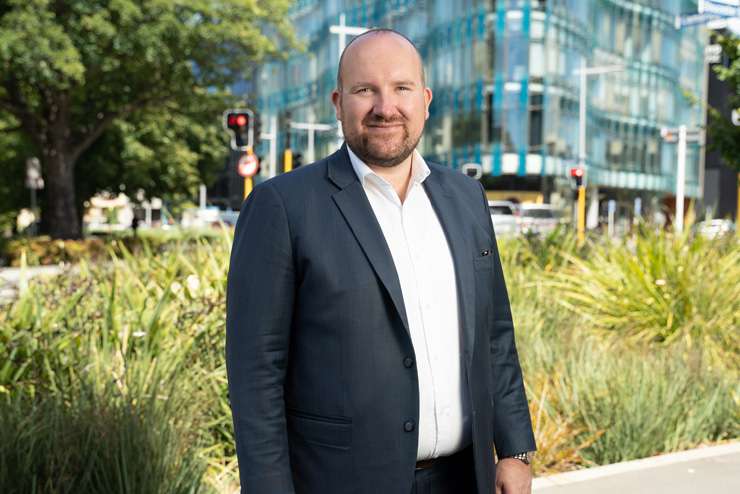Mortgage brokers have warned homeowners to prepare for more interest rate shocks, as a result of high inflation and global economic uncertainty.
Economists have been revising their interest rate forecasts after the latest Consumer Price index figures came well above expectations.
An inflation rate of 7.2% in the three months to the end of September – down 0.1 percentage points on the previous quarter – means the Reserve Bank will likely push the Official Cash Rate well above 4%.
ANZ economists expect the cash rate to peak at 5%, while ASB thinks the rate will peak at 5.25%.
Start your property search
Many commentators believe the Reserve Bank will lift the cash rate 75 basis points next month to 4.25% – its highest level in almost 14 years.
For mortgage holders, a higher cash rate means higher interest rates. The uncertainty has led to many homeowners expressing their fears on property-related social media, with some noting that they face higher interest rates than what they tested on when they got their home loan.
Some homeowners on these forums have spoken about breaking their existing fixed rates and re-fixing at a higher rate in order to dodge higher rates further down the road. Mortgage advisers interviewed by OneRoof said they have in recent weeks been inundated by questions around re-fixing mortgages.
Nathan Dyson, of Cave Financial Consulting, says those who bought between August 2021 and December 2021 – at market peak – will be hardest hit by the changing economic environment.
Some will find that as result of falling property values, they no longer have 10-20% equity in their property, which puts them into a higher category in the eyes of their lender. They may face low equity premiums as well as higher interest rates.
“Borrowers in this situation are not going to find it easy. Not to mention they are unable to get out of their low equity loan, particularly if their house is now worth 17% less than when they purchased it one year prior.” Homeowners in this situation should reach out to an experienced mortgage adviser to see if they can refinance with a lender that does not charge low equity premiums, Dyson says.
Dyson says he has been working with a young married couple with three small children who are feeling the pain of mortgage rate rises. The family was initially able to borrow around $1.1m to $1.2m. Four months later with mortgage rates going up, the family can only get a mortgage around the $900,000 mark. “That is a difference of $200,000 to $300,000 in four months.

EasyStreet Mortgages broker Gareth Veale: “People in financial strife should know that this is momentary, and can’t go on forever.” Photo / Supplied
“Something which has taken everyone by surprise, is that this is one of the fastest rate hikes in our history,” says Dyson. “Previously when interest rates have gone up it has been a slower rate of change.” The positive for first-home buyers is that the Auckland market has dropped in price.
Even though some homeowners are struggling, many are on interest rates that are under the test rates at which they bought, says Gareth Veale, adviser at EasyStreet Mortgages. “In theory, [mortgages] are still affordable,” he says.
“People in financial strife should know that this is momentary, and can’t go on forever. If it does, inflation is rampant and expect everything else to go up, including wages. Hopefully things balance out over the year.”
Aseem Agarwal, head of mortgages at Global Finance, says many clients re-fixed earlier in the year for longer periods such as two or three years. Fewer clients’ mortgages are coming up for renewal now, thanks to the slowdown from October 2021 onwards.
“I believe the ones who will be hardest hit will be the ones who fixed their loans in the middle of 2021 for 2 years so by the time their loans come up for renewal next year, it is likely the interest rate may have reached high 6 or early 7s. So they will be going from a rate of around 2.5% to suddenly 6.5%-7%.”
Despite the enthusiasm by some homeowners to re-fix now after mortgage interest rates have risen from earlier in the year, independent economist Tony Alexander is warning homeowners to be wary of fixing for three to five-year periods.
Adviser Campbell Hastie, of Hastie Mortgages, says he has had one customer who chose to break early in an attempt to “see through the peak”. Like many clients of advisers his mortgage was split into multiple different fixes to help ride out the scenario of the entire mortgage rolling onto a high rate all at once. “The vast majority of my clients have been well trained,” says Hastie.
“They know the benefit of splitting one’s mortgage to spread the impact of rate increases over time. They know the increase is unavoidable but can plan for it. It’s a strategy that most have been running with for many years and the dividends of that strategy are really paying right now.”
When rates were low over the past five years, Hastie encouraged all of his clients to keep their payments the same every time interest rates fell, to smash their loan balance. Some of the social media posters had done the same and referred to it as “smashing the mortgage like avocado”.

















































































